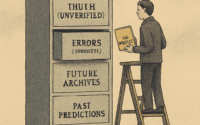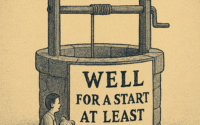Codependency et al – The Upside
Welcome to the emotional funhouse where blame becomes performance art and martyrdom gets a glow-up. This piece reimagines dysfunction as a poetic playground — trading justice for joy, guilt for glitter, and self-pity for self-parody. Featuring shower songs, ear clips, and the occasional existential cuddle, it’s a manifesto for anyone who’s ever loved too hard and labeled it philosophy.

How popular is the upside of blaming your partner and/or wanting to cure him/her? Being the hero.
“I love my man and I have scars to prove it”.
You get to play the martyr (warm fuzzy) when you should just be moving on (common sense). You love so much yet it’s the wrong type of love.
There is always an upside, a payoff, to our misery. Its why we linger on it and are so reluctant to get over it. Having someone to blame is a great comfort as it allows us to down tools and erect monuments to the damage done.
Having been sinned against, justice dictates you stay wounded. No further growth is allowed. It’s a great deal. You get to cave in mentally. Milk the cause of the damage as much as you can. Write poems about it. Glorify it. Polish that turd! Misery is so much easier than recovery. And so the cycle perpetuates, like drug addiction. It is a fair thing that we remain damaged.
Get this. There is no point to recovery. If you choose to recover you will feel real pain again. You will get to kick yourself, but hey, that is what feelings are for, pain and joy. Choose pain over numbness, grow up. Find yourself, but don’t look for yourself in someone else’s eyes. Don’t go getting your self-esteem off others. That would just be others-esteem now, wouldn’t it?
The main reason it is easier to blame the other is that we know them better than we know ourselves. Because our definition of ourselves is so shallow and off-the-mark, having been based too much on the way others see us. You can hide from yourselves in the arms of another for only so long. Eventually, even they will notice that there is no one home.
Love yourself first (do the hard yards there), to become somebody capable of loving another, from your heart rather than just from theirs! It is the difference between doing something remarkable and doing something to appear remarkable. Yes, there is a difference, since it is not what you do, but why you do it that matter most. Motive over action every time.
So live remarkably. Life is a gift. We should be damn grateful, encouraging our wounds to heal, tolerating the imperfections in both ourselves and others.
Don’t hang around waiting for that compensation cheque. Screw justice and choose life again. Screw equality! Strive for and celebrate harmony. Forgive everyone, especially yourself. Laugh, sing in the shower; just get over it. And every now and then, hope that someone comes by and gives you a clip around the ear, because we are self-absorbed idiots in disguise, and a clip around the ear can often fix that.
Harry is a recovering satirist, part-time philosopher, and full-time tinkerer of tags. He once wrote a poem about recursion that never ended, and a JavaScript confession that crashed three browsers. His archive spans two decades of metaphysical mischief, theological punchlines, and nostalgic detours. He believes in the transformative power of satire, the elegance of well-placed meta tags, and the occasional necessity of poetic nonsense.




This one’s a fierce, funny, and deeply insightful reckoning with the emotional economics of codependency. It dismantles the martyr myth with surgical satire, then rebuilds a philosophy of self-love and authentic growth. The tone is raw but redemptive — like a tough-love therapist crossed with a stand-up comic and a Zen monk.